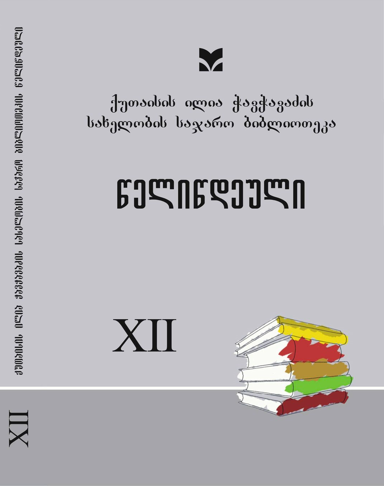Oral Stories of Crypto-Christianity in the Chorokhi Basin
DOI:
https://doi.org/10.48614/yk.12.2020.245-254Keywords:
Dialogue of Cultures, Chorokhi Basin, Collective Memory, Oral Histories, Crypto-ChristianityAbstract
In historical South Georgia, in particular, in the Chorokhi basin, a unique picture of the local population is created by the historical reality of recent centuries: the region came under the Ottoman rule in the XV-XVI centuries, followed by a process of segregation of the local ethnocultural world.
Over time, the beliefs, language, lifestyle, and order of the local population have changed, self-knowledge ... Part of the history of the Chorokhi Basin has hidden Christianity:
The natural aspiration of generations to adhere to the faith and traditions associated with faith and, on the other hand, the desire to avoid discrimination, for some time, led to the formal recognition of Islam and the secret devotion to Christianity, the secret worship ...,
And the memory of the local population about the religious layer of the intense dialogue of cultural cultures is still preserved.
Consequently, the thematic arcs of the Christian era, the process of Islamization and the hidden Christianity, as well as the firm establishment of Islam are visible in the oral histories as well.
It is noteworthy that in the historical Klarjeti, Shavsheti, Tao, Sper ... a significant part of the above-mentioned traces have been deleted, also, the assimilation process has been completed in many places, which makes the studies conducted in the region especially relevant.
The paper analyzes some issues of the collective memory of the people of Chorokhi basin, in particular, related to hidden Christianity, based on oral material collected by the author in the field expeditions of 2005-2019, based on sources and scientific literature of the late 19th and early 20th centuries.
Field records are folk tales, painted on the basis of people’s memory. Every narrative has a specific narrator. Every speaker is the owner of information spread among the people living in a particular geographical area. This information reflects the existence of contemporary and previous generations - both real facts and episodes of transformation of the consciousness of the local population.
Collective memory materials, oral histories gathered in separate valleys and villages, show that the connection with the past has not yet been completely severed, however, these stories are no longer accompanied by emotional charge.
In addition, the tragic consequences of intercultural dialogue are often presented differently, and the difference is due to the worldview of generations’ adventures, the ideological, cultural and material context of the existing reality, attitudes towards important facts and events of epochs, attitudes towards one’s own identity, etc.




